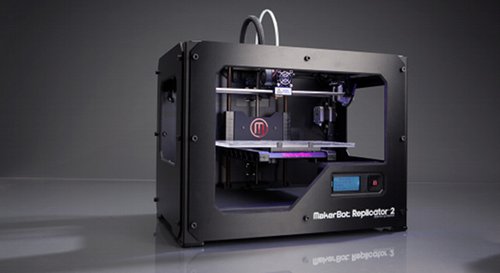Blog posts tagged trends
Ten innovation trends that could transform business this year
 Back at the beginning of the year, LondonlovesBusiness.com and Sage drew up a list of ten innovation trends that will be key to business growth in 2014.
Back at the beginning of the year, LondonlovesBusiness.com and Sage drew up a list of ten innovation trends that will be key to business growth in 2014.
Now we’re three months into the year, how many of these predictions look accurate to you?
1. Alternative finance
Business owners stand to benefit substantially from the rise of alternative finance over the coming months.
Credit cards, overdrafts and loans are no longer the only ways to finance business growth. Crowdfunding, peer-to-peer lending, equity funding, supply chain finance and invoice discounting are all worth investigating and pursuing.
2. The sharing economy
Skillshare, Sidecar, and Zipcar are successful examples of the burgeoning sharing economy in action.
These business models allow customers to share products rather than buy them outright. Their rise is encouraging for smaller companies, because they can attract customers who can’t manage to buy their products outright.
3. Mobile money
Mobile money is on the rise. New payment technologies are making it easy to handle your finances on the go.
You can now create and manage invoices and take credit card payments on your smart phone.
4. Big data
2014 is the year ‘big data’ stops being a buzzword and starts being something smaller companies can really use.
Improving analytics technology is giving businesses the opportunity to drive growth through data. Learn more details about your most valuable customers. Understand your finances more intimately. Make strategic decisions that are driven by data more than by gut feeling.
5. Clever communications
In 2014, consumers expect personalisation. Big companies understand that we have entered the age of clever comms, and are big data and analytics to offer highly personalised products to their target audience.
Smaller businesses must follow this lead. Bombarding your market with poorly directed emails just doesn’t cut it anymore (although you could argue that it never did).
6. Collaboration and co-creation
Some of the most exciting tech-start ups are pioneering what looks set to become a major feature of business in 2014: collaboration and co-creation.
They’ve realised that by working side-by-side, separate businesses have a greater chance of sparking new ideas for innovation and growth.
7. Changing retail spaces
If you’re in retail, the rise and rise of price comparison apps means it’s really important that people entering your shop have an unforgettable experience.
That space is yours alone. It’s the ideal platform to showcase your brand’s identity, so you should make the most of it.
8. Social listening and trend-watching
Social media is everywhere, but social listening and trend watching are becoming increasingly important in directing product development.
If you are selective and intelligent with the social channels you employ, they can help you work out exactly what your customers want.
9. Austerity pricing
Britain is no longer in recession, but people are still mindful of their wallets. Pricing strategies that appeal to austerity Britain will remain popular.
Just look at the recent successes of companies like Pizza Express, who offer clever discounts through voucher websites such as Groupon.
10. Responsibility
No, sustainability isn’t just a buzzword. A company’s carbon footprint and its desire to give back to the local community are increasingly important in consumer decision-making.
Practicing responsible, ethical business can benefit both society and your profit margins.
- The big 2014 predictions list
- The six best websites for business IT
- Democratising big data: how it can benefit smaller companies
This post was written by Piers Barber, a business writer for Sage Business Software who has an interest in the growth of mobile technology and business.
Tech that could change your business sooner than you think

3D printing: coming to your business sooner than you think?
Spotting the pieces of technology that are going to have a significant impact on businesses is a mug's game. So we thought we'd have a go anyway.
Here are four pieces of technology we think could make a big difference to UK companies in the next 12 months. We'll be watching them closely - and as things change fast in the world of tech, we recommend you keep an eye on them too.
1. Windows 8 tablets
After many false starts and a number of flawed devices, this is a make-or-break year for tablets running Microsoft Windows.
Surface Pro - Microsoft's big hope - is coming soon. Other notable Windows tablets include the Dell Latitude 10 and Lenovo's ThinkPad Tablet 2
Windows 8 is designed for touch screens, so the theory is you can have the same interface, software and files across your desktop computer and your tablet. It could be a seamless computing experience that hits iPad for six. But will it work? The next few months will tell.
2. Mobile payment systems
We mentioned iZettle last year, but since then a whole host of other mobile payment systems have arrived on the market. For starters, check out Intuit Pay, mPowa and SumUp.
Most work in a similar way: they use an app on your smart phone plus a small card reader to take card payments.
Typically promising fewer admin headaches and lower costs than traditional merchant accounts, they could be a great option for retailers, restaurants, taxi drivers, street vendors and more.
3. Mobile phones with 4G
The UK's first 4G mobile network, Everything Everywhere, got out of the blocks quickly last year. However, limited coverage and expensive data bundles have dissuaded many potential customers from signing up.
This year will be different. O2, Vodafone and Three will all be vying to launch 4G networks. The number of 4G devices available should increase, and - with luck - prices will drop as competition and coverage improve.
Make no mistake: if it's cheap enough, 4G has the potential to transform mobile working.
4. Three-dimensional printers
Ok, while we my be more than a few months off having a 3D printer in every company, these niche gizmos are on the verge of making a big impact.
3D printers let you print objects. They build them up one thin layer of plastic at a time, seemingly constructing things you can hold in your hands from thin air. This video shows you how they work.
They may not be ready for mainstream adoption yet, but the potential of these devices from companies like MakerBot and Printrbot is huge - particularly for designers who want to create prototypes quickly and cheaply.
In the future, we may see spare parts for everything from furniture to cars simply printed to order.
Embracing technology but still lagging behind?
 You might have seen our recent survey, in which 60% of respondents said they plan to invest in technology in 2012. Now a separate survey of 1,250 companies, run by the Epson Business Council, has found that 51% of British small businesses reckon IT is an integral part of their drive for business growth.
You might have seen our recent survey, in which 60% of respondents said they plan to invest in technology in 2012. Now a separate survey of 1,250 companies, run by the Epson Business Council, has found that 51% of British small businesses reckon IT is an integral part of their drive for business growth.
No surprises there, really. After all, technology plays a key role in almost every aspect of business.
However, when compared to their continental counterparts it actually looks like British businesses are lagging somewhat behind. In France and Germany, the same survey found 76% of businesses consider IT integral to growth. In Spain it was 73% and in Italy it was 68%.
Those differing attitudes were reflected in the adoption of technology too. The research showed that only 27% of British small businesses use smartphones and 38% use tablets.
Given the relative youth of tablet computers, it seems surprising that more businesses use those than use smartphones. But assuming that’s accurate, in France and Germany an even greater proportion of businesses said they use tablets. More than half, in fact.
Does that mean British businesses are getting left behind, or are they simple taking a more measured approach in adopting these new technologies?
There is one other possibility, of course. We’ve seen a growing trend of employees bringing IT to work, circumventing the IT department and hooking their own smartphones and tablets up to company systems. Could that account for some of the discrepancy?
Do these survey results match your own experiences? Leave a comment to let us know how you use tablets and smartphones.



